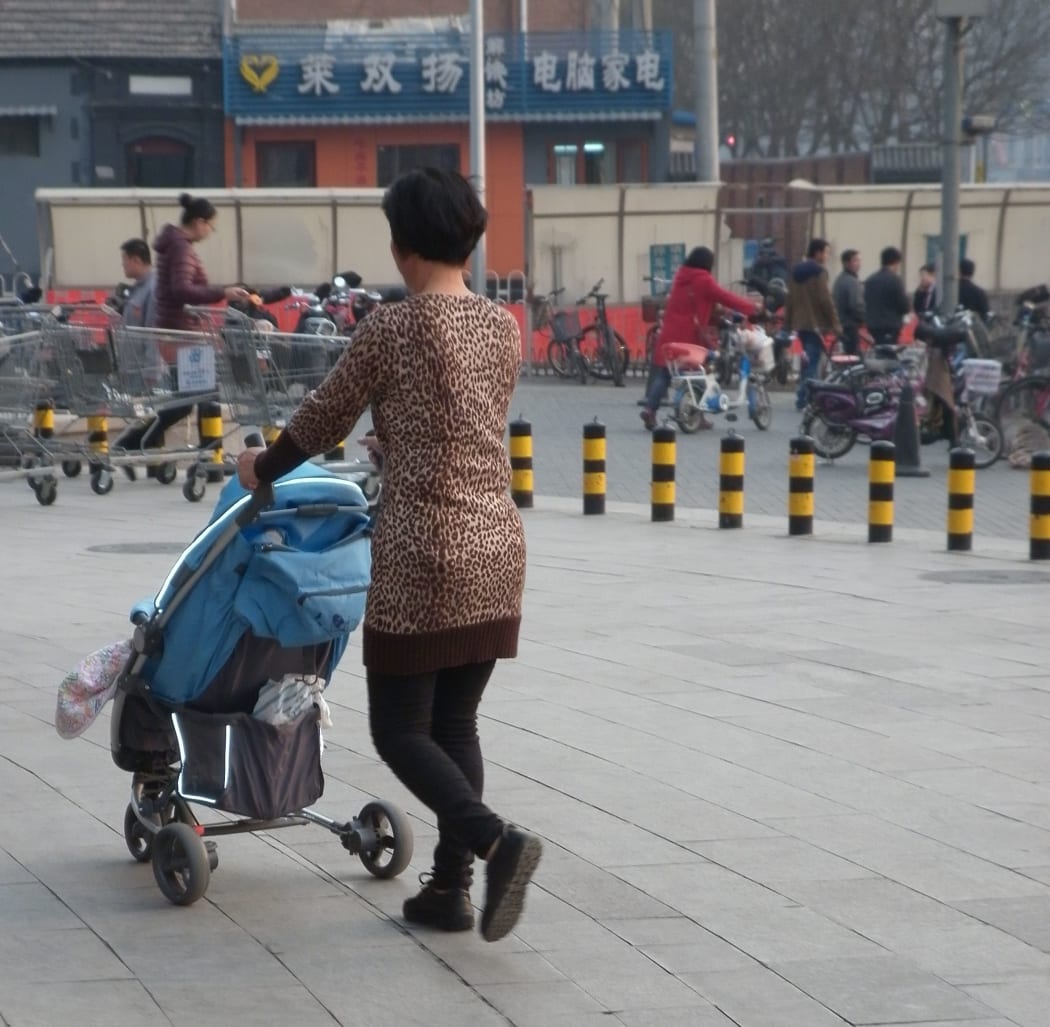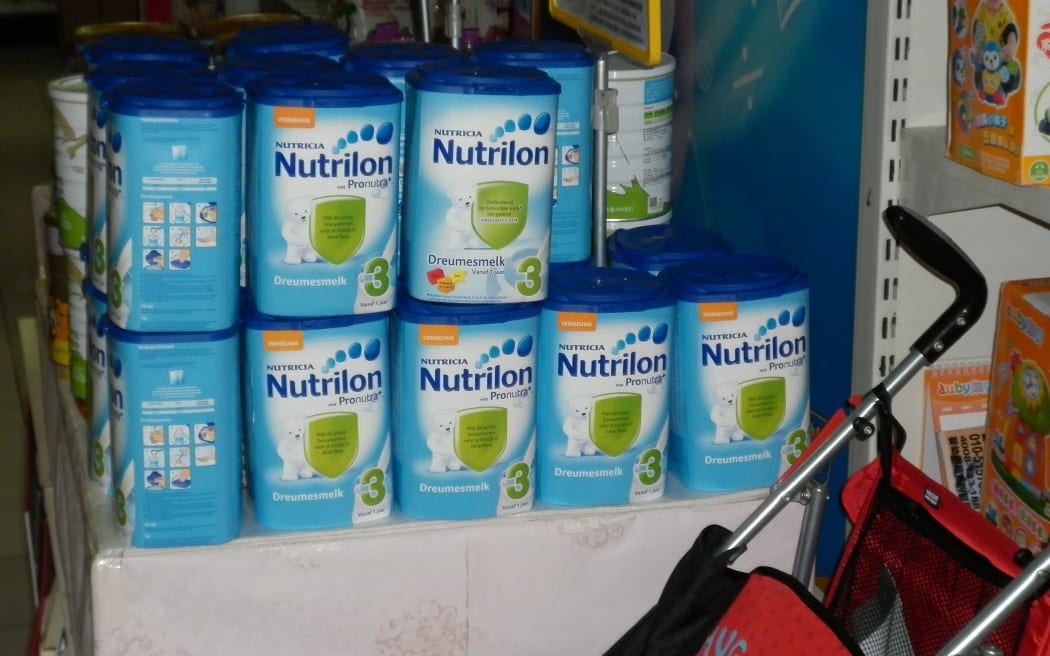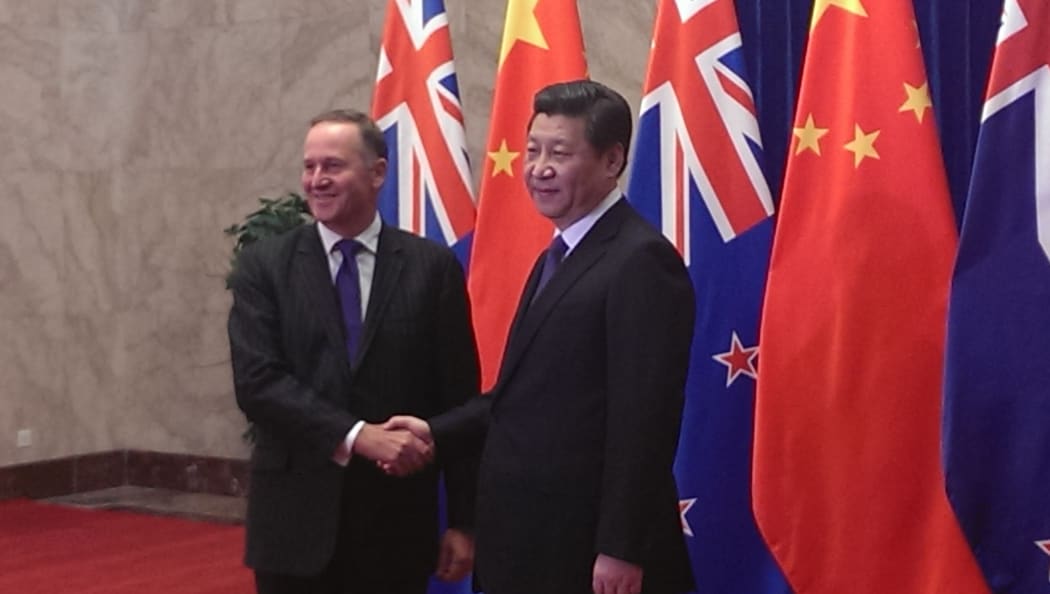Dairy exports are likely to play a huge role in helping New Zealand hit its ambitious new trade target with China. But there are worries that people there have not heard that Fonterra's botulism scare last year was a false alarm.
Political reporter Demelza Leslie went to China to investigate for Insight.

Demelza Leslie, Political Reporter. Photo: RNZ / Diego Opatowski

Mother and child in downtown Beijing. Photo: RNZ / Demelza Leslie
The dairy giant Fonterra was forced to recall products worldwide last August after it was suspected that whey protein powder from its Hautapu plant in Waikato had become contaminated with botulism-causing bacteria.
The company said it could not guarantee the safety of some of its products. However, later tests showed that Fonterra's dairy products were safe.
The news was scary for Chinese parents, most of whom have a single child under the country's one-child policy.
Many of these parents buy foreign-made infant formula because they do not trust the safety of their local dairy industry following the 2008 melamine scandal.
In a downtown Beijing baby store, Cindy, whose daughter is two years old, said she used to buy formula sourced from New Zealand.
"My top concern is that the source of the milk has to be safe, and that includes the production process. I used to buy New Zealand products but last year the news said there was something bad with it, so now I buy formula from Holland."
Another mother, Qua Xi Ja, started using infant formula for her baby girl not long after she was born. She was using a product from New Zealand up until late last year but now arranges for family and friends to ship milk powder from Germany.
"I can't gamble with my baby's health. I have to be sure that products are safe," she said.

Danone's Nutricia infant milk formula on sale in Beijing. Photo: RNZ / Demelza Leslie
Fonterra says these concerns have not affected its sales of milk in China. It says initially there was a slow down in trade, but now sales have bounced back to be better than ever.
The Prime Minister, John Key, told Insight the Chinese government now accepts Fonterra's contamination incident wasn't a case of botulism. He says changes have been made to improve New Zealand's food safety systems.
"My sense is that a political level they understand the issues and what we've done.
"But it is one thing for the politicians to be comfortable with the process, it needs to be completely squared away with consumers. All indications are that that is the case, because our export volumes continue to grow so rapidly in China," Mr Key said.
The prime minister has set a new trade target with China's President, Xi Jinping, to reach $30 billion by 2020. The New Zealand dollar will also be the sixth currency to be directly traded with the renminbi, or yuan.
Mr Key said that target is "eminently achieveable" as long as New Zealand sells a lot more goods, particularly dairy, to China.

Prime Minister John Key says our relationship with Chinese leaders such as President Xi Jinping is crucial to boosting trade. Photo: RNZ / Demelza Leslie
The Trade and Enterprise commissioner based in Shanghai, Mike Arand, also says the new $30 billion two-way trade target is achieveable.
"New Zealand businesses need to make some changes in what they are doing. We need to start thinking about what else we can sell and how we can get more value out what we sell," he said.
Mr Arand said China and New Zealand are trying to move on from Fonterra's botulism scare.

